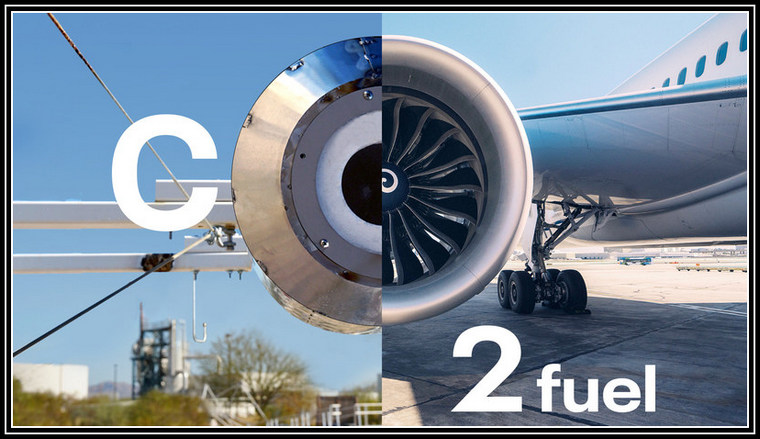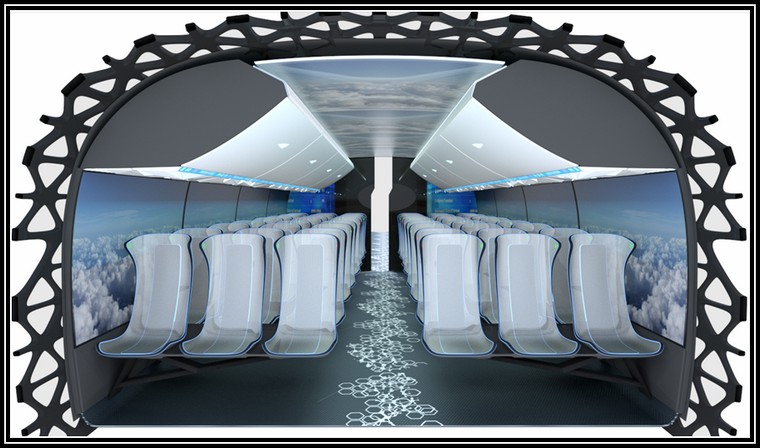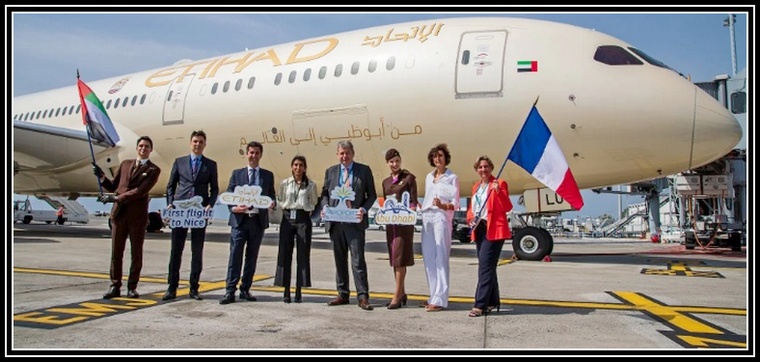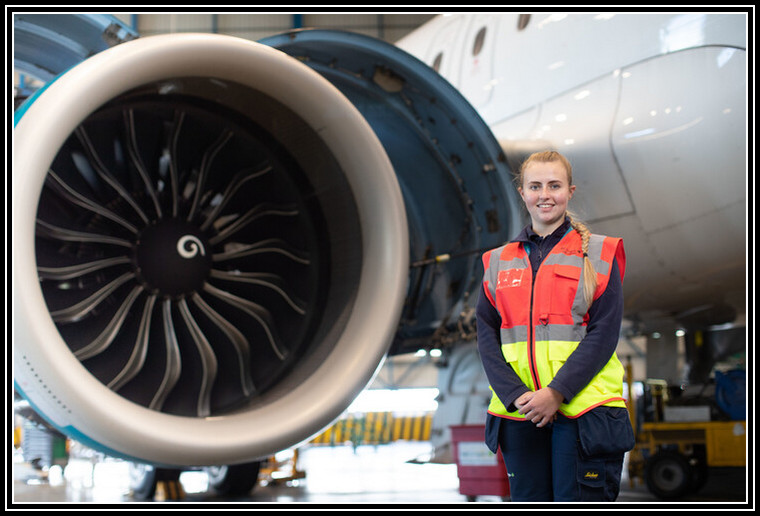






























Airlines, Airports and Airliners News 20 to 26 June 2022
Compiled by Willie Bodenstein
Google Banner Ad
THIS WEEK IN AIRLINES, AIRPORTS AND AIRLINERS
Ethiopian Cargo & Logistics Wins "Air Cargo Industry Customer Care Award 2022".
Transforming yesterday's emissions into tomorrow's sustainable aviation fuel.
IATA ensuring safe rollout of 5G networks.
New Boeing eco-Demonstrator program testing 30 sustainable technologies on a 777-200ER.
SWISS extends collaboration with AirPortr to Zurich Airport.
FACC presents cabin concept for next-generation aircraft.
Qantas And Airbus joint investment to kickstart Australian biofuels industry.
SAA and Discovery announce strategic partnership to provide airport lounge access for Discovery Bank clients.
Etihad launches five summer services, growing network to over 70 destinations.
Aer Lingus launches its 2022 aircraft maintenance and engineering apprentice scheme.
Google Banner Ad
ETHIOPIAN CARGO & LOGISTICS WINS "AIR CARGO INDUSTRY CUSTOMER CARE AWARD 2022"

Ethiopian Airlines won "Air Cargo Industry Customer Care Award 2022" for the second time in a row, in recognition of its excellence across a wide range of activities in the global air cargo industry. The award was given virtually during Air Cargo Weeks Award program held in Shanghai on 15 June 2022. Qatar Cargo, Saudi Cargo, United Cargo and KLM Air Cargo were among the shortlist of the category.
TRANSFORMING YESTERDAY'S EMISSIONS INTO TOMORROW'S SUSTAINABLE AVIATION FUEL

United and United Airlines Ventures (UAV) today announced an investment in and commercial agreement with Dimensional Energy, another step forward to reach United's 100% green net zero commitment by 2050, without the use of traditional carbon offsets. Dimensional Energy's novel technology removes the need for fossil fuels, converting carbon dioxide and water into usable ingredients for the Fischer-Tropsch process - a nearly 100-year-old proven technology used to produce fuels from coal or methane. While facilities around the world continue to use Fischer-Tropsch to produce fossil fuels, Dimensional will be one of the first to use it to produce sustainable aviation fuels (SAF).
"Sometimes you have to look to the past to solve new problems, and we recognise that decarbonising air travel is going to require combining proven technologies, such as Fischer-Tropsch, with the latest advances in science and engineering," said Michael Leskinen, President of United Airlines Ventures. "As we grow our portfolio of companies like Dimensional, we are creating opportunities to scale these early-stage technologies and achieve United's commitment to carbon neutrality by 2050, without the use of traditional carbon offsets."
Dimensional Energy was founded in Ithaca, New York, in 2016 and has spent the last six years refining its reactors and catalysts in both lab and real-world demonstrations. The company's early success led to its status as a finalist in the first Carbon Xprize, and in September 2021, global climate technology non-profit investor Elemental Accelerator funded Dimensional as part of its 10th cohort, which led to the company's introduction to United. Dimensional has also received grants from the National Science Foundation and both the Department of Energy's ARPA-e and Solar Energy Technology Office (SETO). The company began construction on a carbon dioxide to fuels demo in Tucson, Arizona in 2021. Commissioning of the facility has already begun, and it is set to begin operation this July.
"Dimensional Energy is acutely focused on energy solutions that centre communities who have been marginalised in the past century as infrastructure and energy systems were developed. We envision a world run on truly conflict-free energy that can scale to meet the global demand for hydrocarbon fuels and feedstocks. United's support of sustainable aviation fuel made from captured emissions is an important step in the aviation industry's pursuit of carbon neutrality," said Dimensional Energy Co-founder and CEO Jason Salfi.
Dimensional's technology can run on all forms of renewable energy. At the Tucson site, they are using electricity from the Arizona grid, which gets an increasing amount of power from local solar panels. Future plants are slated to use hydro-power, wind-power and rapidly maturing concentrated solar, which utilises heat from direct sunlight.
Dimensional can also utilise carbon dioxide from a variety of sources, be it straight from industrial sites (like cement plants), from Direct Air Capture (a technology that can capture CO2 from anywhere in the world), and biological processes like fermentation and biomass gasification.
The announcement marks UAV's fourth SAF-related technology investment, but its first the pathway of power-to-liquids: which creates SAF synthetically without the constraints of feedstock growth that is prevalent in other biofuel pathways. Launched in 2021, UAV targets start-ups, upcoming technologies, and sustainability concepts that will complement United's goal of net zero emissions by 2050 - without relying on traditional carbon offsets. Over the last decade, United has built a first-of-its-kind sustainability-focused ventures fund. UAV's portfolio now includes SAF producers and other technologies including carbon capture, hydrogen-electric engines, electric regional aircraft, and urban air mobility.
Google Block Ad
IATA ENSURING SAFE ROLLOUT OF 5G NETWORKS

The International Air Transport Association (IATA) urged governments to work closely with the aviation industry to ensure that aviation and incumbent aviation safety systems can safely co-exist with new 5G services. While IATA recognizes the economic importance of making spectrum available to support next generation commercial wireless telecommunications, maintaining current levels of safety of passengers, flight crews, and aircraft must continue to be one of governments' highest priorities. The call came as the industry was meeting in Doha, Qatar at the 78th IATA Annual General Meeting.
"We must not repeat the recent experience in the United States, where the rollout of C-band spectrum 5G services created enormous disruption to aviation, owing to the potential risk of interference with radio altimeters that are critical to aircraft landing and safety systems. In fact, many countries have successfully managed to facilitate the requirements of 5G service providers, while including necessary mitigations to preserve aviation safety and uninterrupted services. These include, for example, Brazil, Canada, France and Thailand," said Willie Walsh, IATA's Director General.
Before deciding on any spectrum allocations or conducting spectrum auctions, IATA called for governments to ensure close coordination and mutual understandings between national spectrum and aviation safety regulators so that each frequency allocation/assignment is comprehensively studied and is proven not to adversely impact aviation safety and efficiency. Robust testing in coordination with aviation subject matter experts is critically important in providing necessary information.
Measures that have already been used by some governments include:
Ensure thorough testing, sufficient spectrum separation between 5G C-band deployments and 4.2-4.4 GHz frequency band used by existing radio altimeters
Clearly codify and enforce the maximum power limit for 5G C-band transmission and downward tilting of 5G antennae particularly in the vicinity of flightpaths
Establishment of sufficient 5G C-band prohibition and precautionary zones around airports
IATA noted that airlines operating to/from and within the US continue to contend with the effects of the rollout of 5G, including a pending airworthiness directive from the Federal Aviation Administration requiring them to retrofit/upgrade radio altimeters at their own expense to enable the respective aircraft to continue to utilise CAT II and CAT III low-visibility approaches at many US airports where 5G C-Band service is currently or will be deployed in future. The timely availability of upgraded altimeters is a concern, as are the cost of these investments and the lack of certainty regarding the future spectrum environment. Furthermore, 19 additional telecommunications companies are scheduled to deploy 5G networks by December 2023.
"FAA's unilateral decision to require airlines to replace or upgrade their existing radio altimeters - which are approved by both the FAA and the US Federal Communications Commission - by July 2023 is deeply disappointing and unrealistic. The FAA has not even approved or certified all the safety solutions that it will require, nor have system providers been able to say with certainty when the equipment will be available for much of the fleet. So how can there be any confidence in the timeline? Furthermore, FAA can provide no guarantee that airlines will not have to carry out further upgrades to radio altimeters as even more powerful 5G networks are deployed in the near future. Safety is our highest priority, but it cannot be achieved with this rushed approach. The FAA needs to continue working with all stakeholders collaboratively and transparently, including the FCC and the telecom sector, to define solutions and deadlines that reflect reality," said Walsh.
The International Civil Aviation Organization (ICAO) and the International Telecommunications Union (ITU) both have recognised and reminded their Member States and Administrations of the importance of ensuring that existing aviation systems and services are free from harmful interference. This will become even more critical as more and more spectrum is being allocated to new generation telecommunications services.
NEW BOEING ECO-DEMONSTRATOR PROGRAM TESTING 30 SUSTAINABLE TECHNOLOGIES ON A 777-200ER

Boeing [NYSE: BA] unveiled its 2022 eco-Demonstrator today with a livery that honours a decade of testing to reduce fuel use, emissions and noise. The latest eco-Demonstrator, a Boeing-owned 777-200ER, will test about 30 new technologies aimed at improving sustainability and safety for the aerospace industry, including a water conservation system and technologies to improve operational efficiency.
During six months of flight and ground tests starting this summer, the 2022 eco-Demonstrator will evaluate:
In collaboration with NASA, SMART vortex generators - small vertical vanes on the wing - that improve aerodynamic efficiency during take-off and landing
A system to conserve onboard water and reduce weight as well as fuel use
Additively manufactured airplane and engine parts to help reduce fuel use and manufacturing waste
An environmentally preferred refrigerant and a new fire suppression agent to reduce greenhouse gas emissions
A heads-up enhanced vision system for pilots to improve operational efficiency
Continued comprehensive study of the impact of sustainable aviation fuel toward the reduction of emissions
For all flight tests, the 777-200ER will fly on a highest approved blend of sustainable aviation fuel (SAF) available
"The Boeing eco-Demonstrator program brings together the two most important ingredients to a more sustainable future - innovative technologies and partnerships with customers, suppliers, government agencies and academia," said Chris Raymond, Boeing Chief Sustainability Officer. "We celebrate the past successes and look forward to continuing this iconic program to help decarbonise aviation, together."
Since its initial flights in 2012, the Boeing eco-Demonstrator program has accelerated innovation by taking new technologies out of the lab and testing them in an operational environment. Including this year's platform, the program has tested about 230 technologies to help decarbonise aviation, improve operational efficiency and enhance safety and the passenger experience. Approximately a third of tested technologies have progressed onto Boeing's products and services.
Google Block Ad

Following a successful trial phase with the new ground product at Geneva Airport, SWISS is expanding its partnership with AirPortr to Zurich Airport, offering smart-baggage services to addresses across the whole of Switzerland. SWISS travellers departing from Zurich Airport can now make use of the secure AirPortr service to have their baggage collected from their home or hotel, transported to the airport, and checked in for their flight.
On arrival at Zurich airport, baggage is collected from baggage claim, cleared through Customs, and delivered to the customer's address. The service saves customers valuable time, with no need to go through the departure airport check-in process or wait for their checked bags after landing.
Swiss International Air Lines (SWISS) is expanding its successful partnership with AirPortr to Zurich Airport, and to addresses across the whole of Switzerland. The attractive baggage service has been available to customers departing from Geneva Airport since last October under a trial phase. SWISS travellers departing or arriving at Zurich Airport can now also make use of AirPortr's smart baggage services, to have their bags collected and checked-in, or delivered back to their home or hotel. These services can be booked any time on www.swiss.com.
"Following our initial success with our new partnership with AirPortr, we can now further enhance our customers' travel experience" says SWISS Chief Commercial Officer Tamur Goudarzi Pour. "The popularity of this simple ground baggage transport service between people's homes and Geneva Airport has shown us already that there is a strong demand for coming to the airport less burdened with bags. So we're really pleased to be extending this attractive option to all our customers all over Switzerland".
Randel Darby, CEO of AirPortr Technologies: "From today, SWISS customers travelling from all over Switzerland can enjoy bag-free journeys to, through and from not only Geneva, but also Zurich Airport. This extension of the AirPortr offering into their main hub is a fantastic step forward in our collaboration with SWISS, having proven the product during a successful six month testing phase. With highly attractive market pricing, we expect to see continued strong growth in demand from Swiss consumers; with baggage-free, intermodal travel to and from the airport now more accessible than ever before".
By selecting the AirPortr option on www.swiss.com, customers can have their baggage collected from their home or hotel up to 23 hours before their flight. All the traveller needs to do is check in online. Their boarding pass will be verified during the collection, and their bags are then sealed to ensure secure transportation to the departure airport, where they are subjected to the usual security checks. Bags are collected in the normal way from the baggage carousel after landing.
Those using the arrival service complete a simple Customs 'e-declaration' online, which allows AirPortr to collect and clear the passenger's bags through Customs, and deliver them to their final address. Customers are kept up-to-date via email and text at every step of the way. They can track their bags at any time through AirPortr's web-app, and are sent digital copies of their airline baggage receipts.

The future of flying will be more sustainable, connected and barrier-free: At the international aviation trade fair AIX in Hamburg, FACC presented a radically new aircraft cabin concept which focuses on the needs of passengers - and is made of renewable materials.
The next generation of passenger aircraft will be setting new standards in terms of sustainability and passenger comfort. FACC AG caused quite a sensation at the International Aviation Trade Fair AIX with the revamping of aircraft interiors. When creating the BIOS FUTURE CABIN, the main focus was placed on the needs of passengers and the use of sustainable materials. The company has opted for a resin derived from sugar cane, which has been optimized for use in aviation through intensive research work.
Passenger experience at the forefront
"When redesigning the aircraft interior, we paid particular attention to making efficient use of the available space," explains CEO Robert Machtlinger. The result: 20% more room to move and 50% more storage space compared to current-generation aircraft. This was made possible by a design approach that integrates seamlessly with the load-bearing elements of the aircraft.
In addition, large screens and intelligent surfaces offer a multimedia experience: the entire backrest is transformed into a screen that can be connected to the passenger's own device, if so desired, and can also play smartphone apps from third-party providers. Via a dedicated control center, each passenger can adjust the ventilation or individually configure design elements.
Barrier-free flying
A 100% wheelchair-accessible cabin and a disability-friendly lavatory are also setting new standards with respect to barrier-free flying. "In terms of accessibility, there is, quite literally, still a lot of room for improvement in aviation," emphasizes Nico Langmann (world top 20 in wheelchair tennis). "Currently, not only the processes themselves, but also cabin designs are not always suitable for wheelchairs, which is why this new design is very promising."
A completely new approach to materials
Ultra-light materials made from renewable resources will also drastically reduce the aircraft's CO2 emissions. To this end, a new lightweight material derived from sugar cane has been developed following many years of research. The properties of this material make it well-suited for use in aviation. Its surface is not only extremely robust, but also resistant to heat and chemicals.
New hygiene concept
A novel air curtain ensures that air is circulated within smaller cabin sections. With this innovation, FACC wishes to contribute to the safety of passengers by making aviation even more resistant to viruses and bacteria in the future.
Google Banner Ad

The Qantas Group and Airbus will invest up to US$200 million to accelerate the establishment of a sustainable aviation fuel (SAF) industry in Australia, in a landmark agreement. The Australian Sustainable Aviation Fuel Partnership was signed by Qantas Group CEO Alan Joyce and Airbus CEO Guillaume Faury in Doha today, ahead of the IATA AGM.
Due to the lack of a local commercial-scale SAF industry, Australia is currently exporting millions of tonnes of feedstock every year, such as canola and animal tallow to be made into SAF in other countries.
The Qantas Group, which has committed to using 10 per cent SAF in its overall fuel mix by 2030, is sourcing SAF overseas. This includes 15 per cent of its fuel use out of London currently and 20 million litres each year for flights from Los Angeles and San Francisco to Australia from 2025.
Sustainable fuels cut greenhouse gas emissions by around 80 per cent compared to traditional kerosene and are the most significant tool airlines currently have to reduce their impact on the environment - particularly given they can be used in today's engines with no modifications.
The Qantas and Airbus partnership will invest in locally developed and produced SAF and feedstock initiatives. Projects will have to be commercially viable and meet a strict set of criteria around environmental sustainability.
Airbus and Qantas agreed to work together on the sustainability initiative as part of the airline's recently announced orders, including the A350-1000 to operate Project Sunrise non-stop flights from Australia to New York and London and the selection of the A220 and A321XLR under the Qantas Group's Project Winton' domestic fleet renewal, as well as lower emission aircraft for its subsidiary Jetstar.
The new fleet will offer a significant reduction in fuel consumption and carbon emissions of up to 25 per cent from day one and are all already certified for operation using 50 per cent SAF.
The partnership is initially for five years with options to extend the duration. Qantas' financial contribution to the Australian Sustainable Aviation Fuel Partnership includes AU$50 million previously committed to research and development of SAF in Australia.
Pratt & Whitney, whose GTF engines were recently selected by Qantas for their new A220 and A320neo family aircraft, is also contributing to the venture. The company supports greater use of cleaner, alternative fuels including SAF, while continually advancing the efficiency of aircraft propulsion technology.
Qantas has started a process of talking to its major corporate customers about their interest in accessing SAF offsets for their organisation's flying. This input is shaping the design of a program that could also be extended to individuals in an expansion of the existing off-setting program Qantas already has in place. This new program is expected to launch later this calendar year.
CEO COMMENTARY
Qantas Group CEO Alan Joyce said the investment would accelerate the development of SAF in Australia, creating value for shareholders of both companies while also creating jobs and reducing the nation's dependence on imported fossil fuels.
"The use of SAF is increasing globally as governments and industry work together to find ways to decarbonise the aviation sector. Without swift action, Australia is at risk of being left behind," Mr Joyce said.
"With this investment, Qantas and Airbus are putting our money where our mouth is and betting on the innovation and ingenuity of Australian industry.

Discovery and South African Airways (SAA) today announced a landmark partnership that will enable Discovery Bank clients to access SAA's airport lounges, and also make SAA's flight network available on the Vitality Travel platform.
With immediate effect, Discovery Bank Purple, Black and Platinum cardholders will be able to use their Discovery Bank app to access SAA's airport lounges.
The long-term partnership will provide customers with access to refurbished lounges and upgraded service offerings at SAA's Johannesburg, Cape Town and Durban lounges.
Discovery Bank CEO Hylton Kallner explained that the partnership is a contribution to both government and the national carrier's broader aims to revitalise operations through a public-private partnership, while contributing to the tourism industry. "We are delighted to work with SAA to upgrade these iconic lounges. Along with our Priority Fast Track Lanes at the OR Tambo and Cape Town International Airports, Discovery Bank clients will now enjoy the best possible end-to-end travel experience. In fact, the comprehensive Vitality Travel suite of benefits ensures that our clients enjoy the best value and experience in travel - whether for business or leisure."
"We are also excited that SAA flights will soon also be available on the Vitality Travel platform as part of our flight network, giving our clients more choice and value in terms of airlines and destinations, and extending our reach into the continent," says Kallner.
SAA Interim Executive Chairman and CEO John Lamola says: "We appreciate the collaboration with Discovery and believe that this partnership will add to the customer experience when choosing SAA as your carrier of choice. We are heading in the right direction, as this partnership is a win-win-win for SAA, Discovery and, most importantly, our customers."

Three seasonal services took off this morning, connecting Abu Dhabi to Nice on the famous French CŰte d'Azur, the historic city of Heraklion on the Greek island of Crete, and Malaga in Spain. All three services are set to be operated on a twice-per-week basis.
Etihad's summer schedule will get a further boost in the next two days with the establishment of routes to the islands of Santorini in Greece and Zanzibar in Tanzania, both operating three times weekly.
"Summer adventurers have plenty to discover with Etihad Airways this year," said Martin Drew, Senior Vice President Global Sales. "From the stunning beaches of the Costa del Sol to the picture-perfect French Riviera, Etihad's summer network offers even more opportunities to get away and experience the wonder of travel in 2022."
Google Block Ad

Aer Lingus has today launched its 2022 Aircraft Maintenance & Engineering Apprentice Scheme and is calling on motivated, enthusiastic, and technically minded candidates to apply for the four year programme. Aer Lingus has a longstanding apprenticeship programme and is offering 10 places on the scheme this year and is keen to encourage a mix of female and male candidates.
Successful applicants who complete the programme will be fully qualified aircraft engineers and will continue to work at Aer Lingus. This forward-looking programme helps ensure Aer Lingus has access to a pipeline of talented and qualified engineers for future growth.
The four year Aer Lingus Aircraft Maintenance & Engineering Apprentice Scheme is run in conjunction with both SOLAS, the State further education and training agency, based in Shannon, and Technological University Dublin. It consists of seven phases and through each phase successful applicants will move between classroom training in both Shannon and Dublin, and on the job training at the Aer Lingus Maintenance and Engineering Hangar at Dublin Airport. Apprentices will be working primarily on line maintenance and will be focused on the delivery of Aer Lingus' guest experience.
The launch of this year's apprenticeship scheme comes at a pivotal time for the airline as it continues its recovery from the pandemic and returns to full capacity and growth. The investment in our people, including the Aircraft Maintenance & Engineering Apprentice Scheme, will help underpin this strategy.
Aer Lingus Chief Technical Officer, Javier Jimenez, said: "Aer Lingus has a proud history of providing opportunities to people starting out on their careers. Since we launched the Aircraft Apprentice Scheme in 2011, we have hired 113 maintenance and engineering apprentices directly from the programme. We continued to recruit new apprentices during the pandemic, and this year we are again looking for highly motivated and technically minded candidates to apply for the programme. This is an opportunity to build a rewarding career in aircraft maintenance and engineering at an exciting time in aviation as we move to a carbon neutral future. With our unique brand, world class reputation and modern fleet, Aer Lingus is at the forefront of commercial aviation, giving successful candidates the opportunity to be part of something special."
The application process consists of submitting a CV application, followed by online assessments and an interview. Applicants need to be 18 years of age by 1st September 2022.
Successful candidates will have a technical and mechanical aptitude and also display maturity, commitment, flexibility, and a willingness to accept responsibility. Excellent communication, inter-personal and teamwork skills are also essential qualities.
The application process for the 2022 programme is now underway at http://careers.aerlingus.com and will remain open until 26 June 2022.
Google Banner Ad

 |
 |
 Copyright © 2024 Pilot's Post PTY Ltd
The information, views and opinions by the authors contributing to Pilotís Post are not necessarily those of the editor or other writers at Pilotís Post.
Copyright © 2024 Pilot's Post PTY Ltd
The information, views and opinions by the authors contributing to Pilotís Post are not necessarily those of the editor or other writers at Pilotís Post.